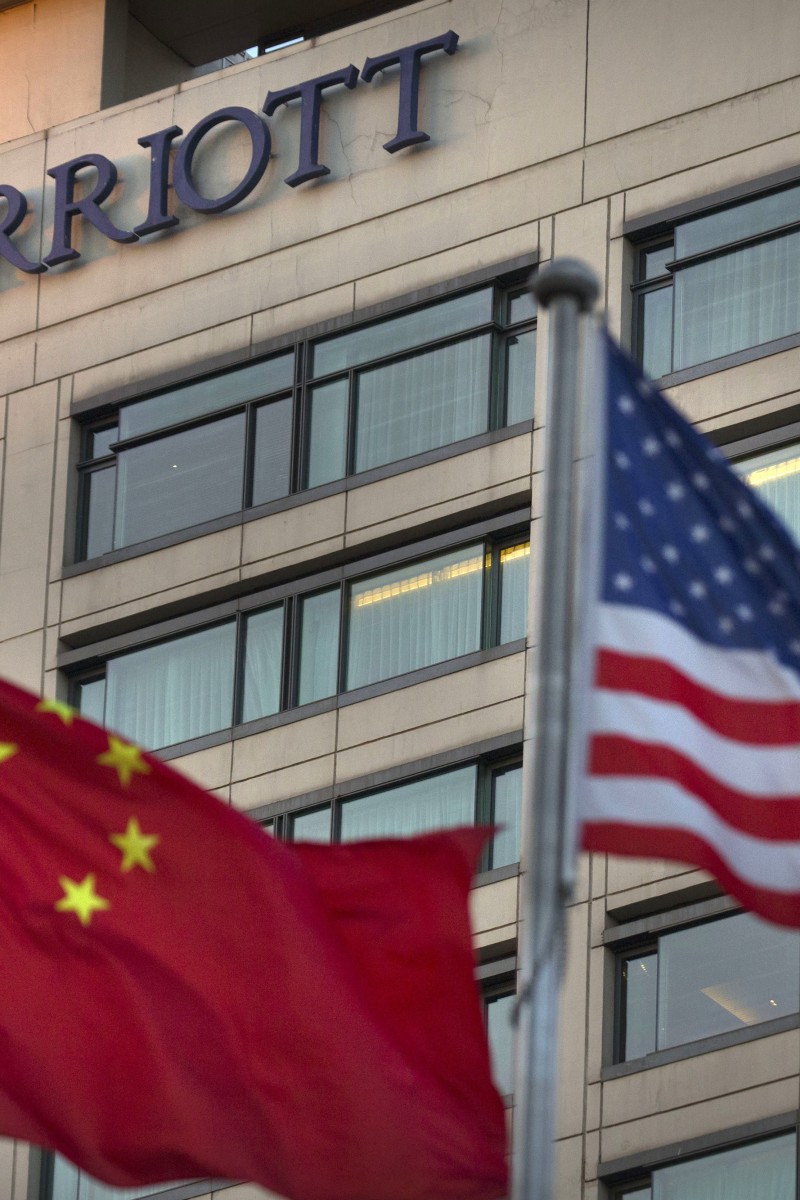
Marriott ‘independence row’ points to sense of insecurity among Chinese
China’s criticism of foreign companies for listing Hong Kong, Macau, Taiwan and Tibet as separate countries is an overreaction that could have been avoided
 The Marriott hotel chain apologised to the central government for referring to Hong Kong, Macau, Taiwan and Tibet as self-ruled countries in a customer survey.
The Marriott hotel chain apologised to the central government for referring to Hong Kong, Macau, Taiwan and Tibet as self-ruled countries in a customer survey. It started with a seemingly innocuous customer questionnaire from Marriott International, which listed Hong Kong, Macau, Taiwan and Tibet as independent countries. That “accident” swiftly prompted outrage from Chinese internet users, and the hotel chain’s Chinese website was suspended for a week by mainland authorities.
Marriott was not alone in finding itself on the wrong side of China’s politically correct netizens. Delta Air Lines, fashion brand Zara and medical device maker Medtronic were later revealed to have referred to Taiwan as a separate country on their websites. So China’s Civil Aviation Administration (CAA) ordered the companies to remove the “illegal content” and demanded an “immediate and public apology”. CAA also called on “all foreign airlines operating routes in China to conduct comprehensive investigations” into such indiscretions.
Remarkably, the campaign against these “geographical gaffes” were not launched by the Communists. It fact, it spread through the internet as thousands of Weibo users vowed to boycott the foreign companies involved in the controversy. The netizens said the companies should simply “Get out of China!”
This sentiment was echoed by the Chinese Foreign Ministry which warned foreign enterprises to “respect Chinese people’s feelings”.
This begs an interesting question: amid an increasingly emboldened China on a global stage, are the feelings of Chinese people too easily hurt? Many of these self-proclaimed “patriots” have been known to bypass the firewall to spam the Facebook accounts of pro-Taiwan news media, Taiwan President Tsai Ing-wen, and even Hongkongers who support Occupy Central.
In a noteworthy episode, Weibo users mocked the 2017 Las Vegas shooting, commenting “These massacres should happen every day” to these “American dogs”. The lack of tolerance of alternative views, despite being expressed on platforms which are supposedly inaccessible to them, and the penchant to belittle other nations, seem to characterise netizens who are perhaps too eager to assert their nationalism. This may point to a sense of insecurity among mainlanders despite the country’s new-found strength – a result of its history of impoverishment and humiliation imposed by former colonial powers.
Nonetheless, the inclination to flood social media accounts with phrases such as “Get out of China!” is not exactly the quality you look for in citizens of a rising superpower. As China lives up to its international responsibilities, Chinese people can no longer view their home market as an invitation-only party where small mishaps could revoke one’s welcome. It’s not good enough for one of the world’s largest economies to demand an apology because its “people’s feelings have been hurt”.
One should act like a global hegemon in order to be treated like one. If you give into anger, you sometimes don’t.